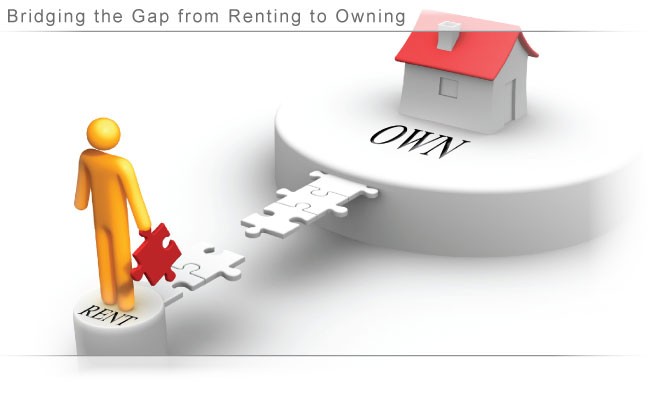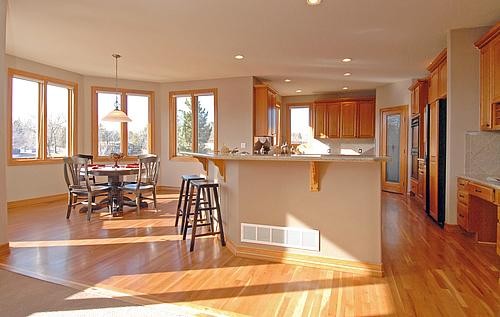Rent to Own Homes
Post on: 6 Июль, 2015 No Comment

Mortgage » Rent to own homes: When it’s not time to buy
Just a few years ago, you hardly ever heard the term rent to own in a market where homeowners had multiple bids from which to choose. But now, with so many homes languishing on the market, it’s a different ballgame. Homeowners are more willing to work out rent-to-own agreements, even with people who would be turned down for home loans.
A rent-to-own contract requires prospective buyers to pay monthly rent to the homeowner, with a portion of it going toward a home purchase at a later date. This contract usually lasts two to five years at which time both parties start the standard home purchase, says Rich Arzaga, a financial planner in Walnut Creek, Calif. who has taught commercial real estate investment at University of California, Santa Cruz.
If you’ve had your house on the market for a while, this transaction could let you move while having someone in your house generating cash flow for your mortgage, says Ron Phipps, president-elect of the Washington D.C.-based National Association of Realtors.
For wishful homebuyers with checkered credit histories, it’s a homebuying option worth considering, says Sam Tamkin, a real estate attorney in Chicago. You may be unable to qualify for a loan right now, but there are sellers who may be willing to consider renting to you with an option to purchase later.
Pros and cons for both parties
Besides having time to build up a down payment and good credit record. renters have the advantage of trying out the house and neighborhood, says Arzaga. You can also lock in the sales price and terms upfront, allowing you to purchase the house at a below-market price in a few years, he says.
Not all the money you pay in rent will go toward the down payment. Mortgage lenders are the ones who decide how much of your rent payments are credited toward the down payment and closing costs, says Phipps. Most lenders will only allow a credit for an amount paid above the market rate for local rentals to be held for eventual homebuying costs.
For example, the house could be rented by its owner for a standard rent of $1,750. But when negotiating the rent-to-own contract, you and the homeowner can agree that you will pay $2,000 a month, with $250 as your homebuying credit. At the end of a three-year lease, you’ll have $9,000 set aside. That money is returned to you at the time of settlement and can be used for your earnest-money deposit, down payment or closing costs.
If you decide not to buy the house at the end of the lease, you probably won’t get a refund. That money is usually only returned to you when you buy the property, says Phipps.
For sellers, the advantages are having an eager buyer and a long-term renter who will care for the house more than the standard tenant. However, there’s a risk of the renter opting out of buying your house at lease’s end, making you go through the listing process again, Tamkin says.
This transaction gives the buyer (the advantage) to lock in the price in advance, but if the home value goes down, he can choose to renegotiate the deal or move on, says Tamkin.
Featured Rates
Buyers could also get the upper hand — and sellers, the disadvantage — if the home’s value rises more than expected. Say the house is currently valued at $200,000 and the buyer and seller agree to a purchase price of $230,000 in three years. If the home ends up worth $250,000 in three years, the seller loses that extra $20,000.

What to put in the contract
There’s no standard rent-to-own contract; each one is negotiable. This arrangement can be complex, and every state has its own regulations. Sellers and buyers should consult with an attorney or real estate agent beforehand to understand the financial implications, says Tamkin.
Renters also should meet with a mortgage lender at the start of the rent-to-own agreement so they know what it will take to qualify for a loan. Before you sign a rent-to-buy deal, pretend you’re buying the house outright, Phipps says. Get an appraisal and a home inspection. Phipps recommends checking with a listings broker to ensure the house isn’t in foreclosure or a short sale.
Include terms stating that your rent money goes toward real estate taxes, mortgage and insurance to avoid foreclosure, says Tamkin. Have an attorney review the title to the home to determine there are no impairments that will prevent you from purchasing the home.
On the seller’s side, Tamkin recommends contract terms that include a security deposit and rights to evict the tenant should he stop making payments.
Other details to spell out are how the money will be held by the sellers and under what conditions the sale will take place. Tamkin says both parties also should consider maintenance, repairs and home improvement, and who pays for them.
There may be negatives about rent-to-own deals, but there are upsides for both parties in a rocky economy.
Someone who can cover your home expenses is better than having a vacant home, says Tamkin. And it’s a stepping stone for renters who dream of owning their own home.














